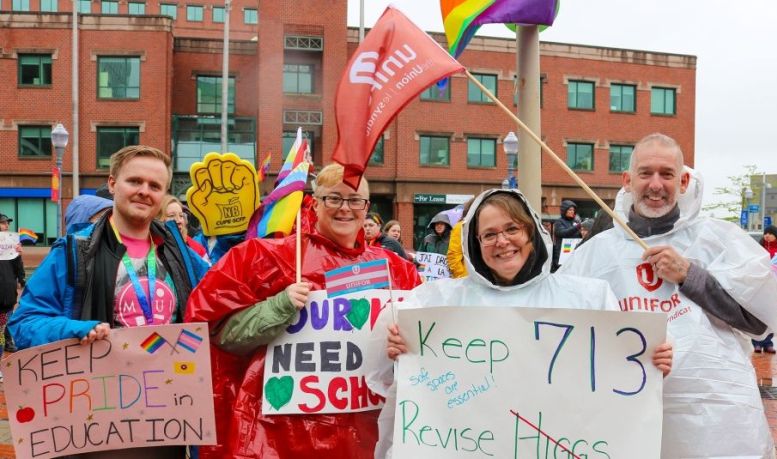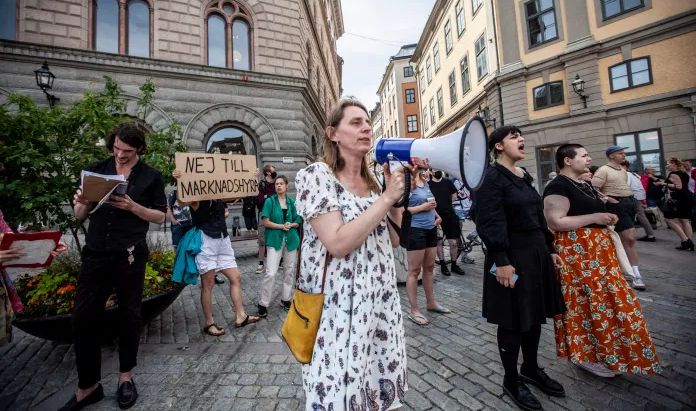Blaine Higgs, the Premier of New Brunswick since 2018, has recently found himself at the centre of multiple controversies. These include but are not limited to his attacks on the LGBTQ community, the status of French language, limitations on abortion access, and a halt on land acknowledgments. His positions on many of these issues are hardly new. In 1989 he ran for leadership of the New Brunswick Confederation of Regions Party; a party which had the anti-bilingual narrative as a core part of its ideology.
Higgs has used the province’s linguistic divide to win elections in 2018 and 2020, and it will come as no surprise if he uses the same strategy again should an election be called now. New Brunswick is Canada’s only officially bilingual province; however, Higgs does not speak French and appears to have made no effort to learn the language. In line with the conservative grievance politics playbook, much like the kind championed by the Federal Conservative Leader Pierre Poilievre and Alberta’s Danielle Smith, once his political positions are exposed, he alleges being targeted for being unilingual.
Although Higgs’ current brand of conservatism makes Danielle Smith seem like a liberal by comparison, he has shown the ability to get away with it and receive relatively little scrutiny. While the rest of the country focuses on more national media savvy politicians, Higgs goes about his conservative agenda quietly. However, now it seems that he may have finally accumulated too many enemies.
Higgs’ imposition of shocking limitations to abortion access have antagonized the province’s health care sector, which has been in crisis for years due to a lack of funds, even when the province has ran a budget surplus for several years. His direction to government employees to halt territorial acknowledgements because the province is involved in a series of legal actions and land claims initiated by First Nations is a direct attack on New Brunswick’s Indigenous population.
The New Brunswick government’s Policy 713 changes policies to require parental consent for any name and pronoun changes for students under the age of 16 and removes language protecting gender identity in sports. This has been objected to by six members of the 29-member Conservative caucus. Two cabinet members, Dorothy Shephard and Trevor Holder, have resigned while Jeff Carr and Daniel Allain were dropped from the Cabinet for voting against the proposed changes to Policy 713. These followed the earlier resignation of Dominic Cardy.
All of this has resulted in Higgs’ own party accusing him of wielding too much power. With a likely leadership review, after a majority of riding presidents called for one, and tensions within his party, an early election is entirely possible.
The potential downfall of Higgs would be indisputably good news. However, it would also not be a final defeat of the xenophobic politics he practises. As Higgs’ repeated election victories have demonstrated, xenophobia is not merely a product of a personal character of one individual. Xenophobia serves a material function.
The ruling class will often disagree as to whom to target, whether Indigenous, Francophone, LGBTQ, or, on the other hand, the “deplorable” working-class people accused of insufficient tolerance of the former groups, but in any case xenophobic politics will remain inherent to, and necessary for normal functioning of capitalism. The capitalist ruling class will always strive to divide the working class. Their apparent disagreements about whom to make the target of hate shouldn’t be confused for revolutionary politics or class solidarity.
Whether or not Higgs is removed from power and political life, the populist xenophobia will survive and re-emerge in the politics of New Brunswick, Canada, and all capitalist states. Higgs, and politicians like him, are nothing more than pathetic lackeys. They’re not worth our scorn. Capitalism is the monster.


